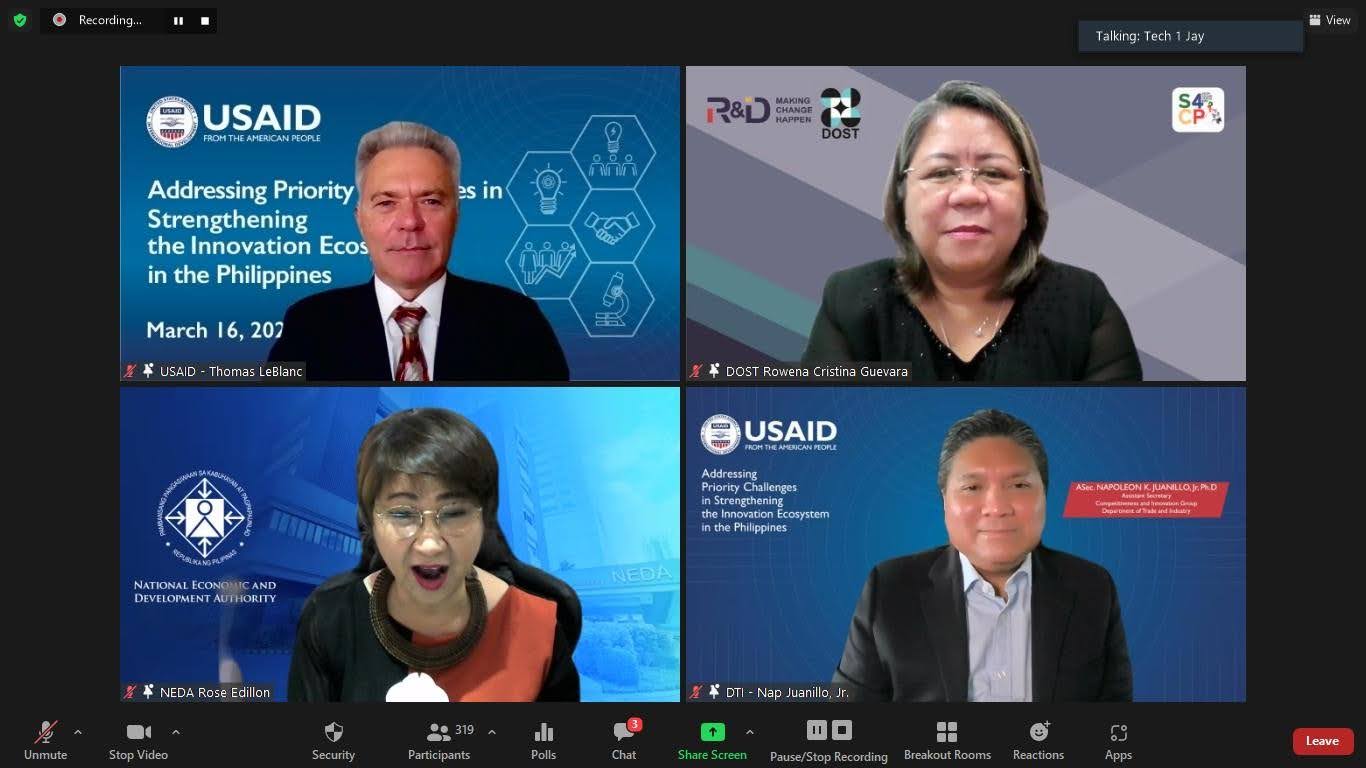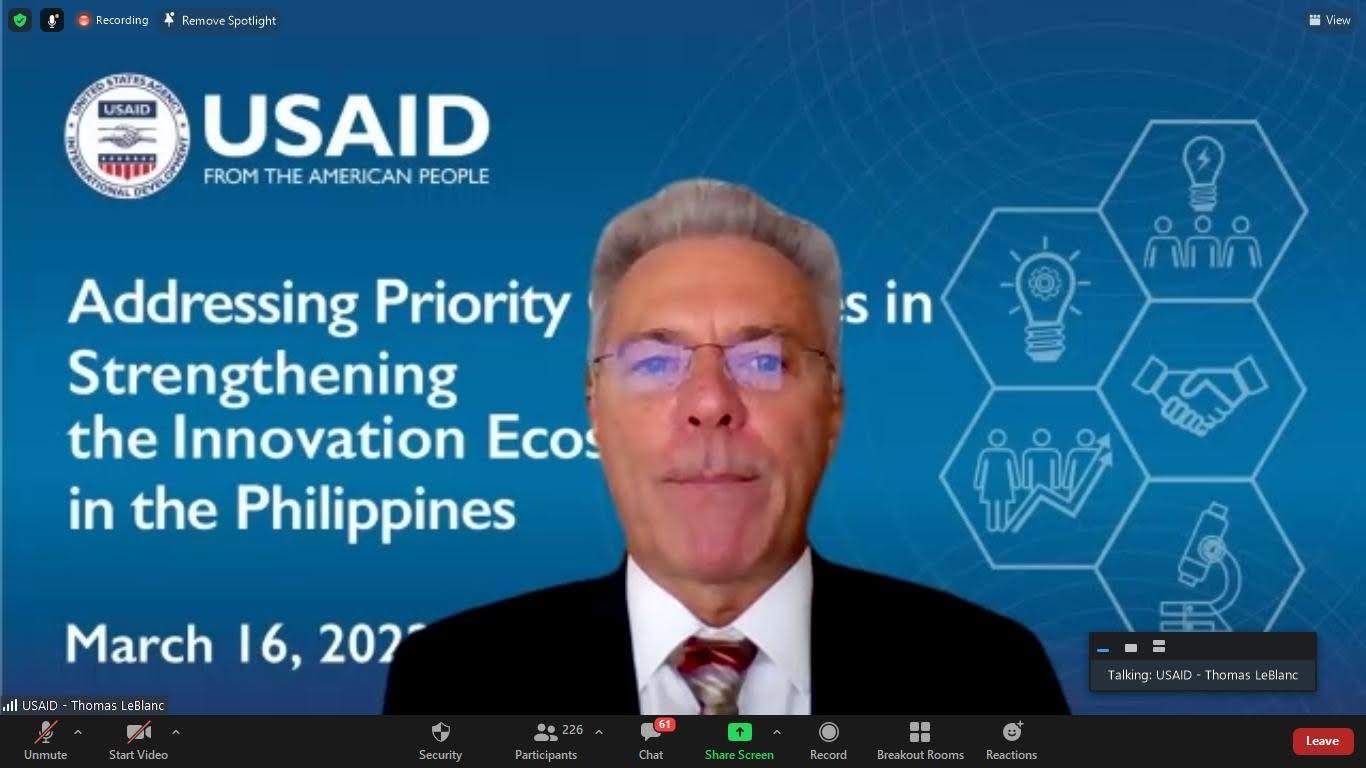
At an online learning dissemination event on March 16, 2022, USAID/Philippines’s Collaborating, Learning, and Adapting for Improved Development (CLAimDev) activity presented the findings of its evaluation of the Science, Technology, Research, and Innovation for Development (STRIDE) activity, which is also funded by the same Mission.
STRIDE aimed to spur inclusive economic growth in the Philippines by boosting science and technology research. It began in 2013 and was extended for three years beyond its original 2018 contract end date. CLAimDev’s evaluation of STRIDE focused on its extension period and, despite mobility constraints due to COVID-19, successfully identified lessons that will inform USAID activities that partner with higher education institutions.

With these lessons to focus on, the learning dissemination event enabled 300 stakeholders from the government, academia, and the private sector to highlight current technical and relationship challenges to science and technology research. Although they have instituted policies and systems that advance the scientific innovation ecosystem in the Philippines, they still confront issues related to funding, unharmonized policies, capacity building, and technology transfer models. Even as the sectors have found spaces to collaborate, they admit to being stifled within their own organizational structures. They are still working in silos, and some are still struggling in their readiness to cooperate.
The participants agreed to new practices to sustain their gains such as strengthening inclusive, collaborative spaces like Regional Inclusive Innovation Centers and promoting inter-office openness, especially in knowledge and technology transfer organizations and business incubation offices. These stakeholders see the value in investing in processes that strengthen partnerships and spur new mindsets on innovation. In the future, they will make the idea of an innovation ecosystem come to life as a collaboration among stakeholders that engage communities. As one stakeholder commented:
One of the things I learned very well from USAID STRIDE is the whole-of-government approach. In the past, some government agencies have had their own silos…But with the way that USAID STRIDE has helped us, I’ve gained new friends not just at the Department of Trade and Industry, the National Economic Development Authority, and the usual innovation departments, but also in other departments…They have a way of getting us together in what I call a safe environment, where we can discuss and get down to work.
─Department of Science and Technology Undersecretary Rowena Christina Guevarra
 Office of Education Chief Dr. Thomas Le Blanc and Program Resource Management Deputy Chief Josephina Cervantes graced the event with opening and closing messages, motivating the participants to continue their efforts as USAID supports partnerships and directions. Other key Philippines’ Government agencies represented at the event included the Department of Trade and Industry, Department of Science and Technology, Commission on Higher Education, Department of Education, Department of Agriculture, National Economic and Development Authority, and Department of Information Communications and Technology.
Office of Education Chief Dr. Thomas Le Blanc and Program Resource Management Deputy Chief Josephina Cervantes graced the event with opening and closing messages, motivating the participants to continue their efforts as USAID supports partnerships and directions. Other key Philippines’ Government agencies represented at the event included the Department of Trade and Industry, Department of Science and Technology, Commission on Higher Education, Department of Education, Department of Agriculture, National Economic and Development Authority, and Department of Information Communications and Technology.
The web version of the STRIDE evaluation report is available here.